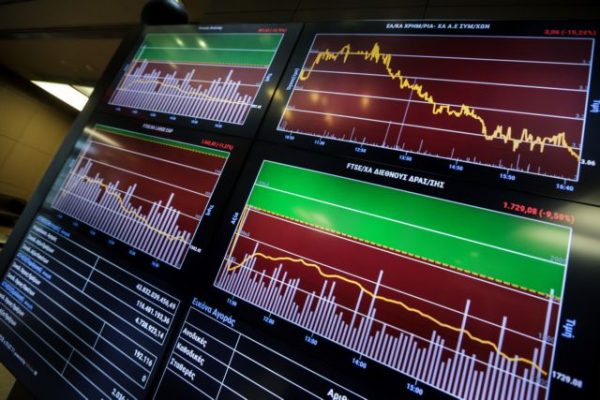
Greek tax authorities have launched a new round of cross-checks on taxpayers who report low incomes—around €10,000—but exhibit annual expenses of €50,000, €100,000, or even €200,000.
The Independent Authority for Public Revenue (AADE) has identified 800 individuals with significant discrepancies between their declared income and their cost of living, placing them under intense tax audits, including the opening of their bank accounts.
Among those targeted are 20 social media influencers, who are being investigated for undisclosed and undeclared income from sponsorships and product sales.
Intensified Audits for Suspected Tax Evasion
AADE Governor Giorgos Pitsilis revealed that the tax authority is conducting regular audits on approximately 800 individuals who declared incomes below €10,000 but were found to have much higher expenses that could not be justified by their declared income or other financial data available to the tax authorities.
These individuals are now required to prove the source of the additional funds they have spent. Those unable to provide sufficient evidence will face additional taxes and penalties.
How the Audits Are Conducted
According to the new audit plan, special investigative teams will employ an advanced algorithm and risk analysis criteria to identify taxpayers with significant discrepancies between income and expenses.
Individuals whose lifestyle does not align with their declared earnings or who own assets of unknown origin will be prioritized for audits. Authorities will apply indirect auditing techniques, such as:
- Liquidity analysis of the taxpayer
- Net worth evaluation
- Review of bank deposits and cash expenditures.
Initial findings suggest that audits will focus on cases where declared income appears insufficient to cover reported expenses or unexplained increases in assets.
Tax Investigations Targeting Influencers
A separate audit is underway for 20 well-known influencers, suspected of concealing income from advertisements and product sales.
Tax authorities will cross-check financial transactions—including credits, withdrawals, and payments—against tax returns to detect undeclared income.
Using an automated algorithm, auditors are conducting extensive online investigations into influencers’ social media accounts on Instagram, TikTok, and Facebook.
How Authorities Track Down Digital Tax Evaders
The method used by tax auditors to identify digital tax evaders follows these key steps:
✔ Social media monitoring – Auditors scan social media platforms, focusing on high-profile users with hundreds of thousands of followers who promote products, from clothing and accessories to dietary supplements.
✔ E-commerce ties – Authorities investigate whether influencers collaborate with e-commerce businesses or hold stakes in such companies while promoting and selling products/services.
✔ Online transactions – Every business-related transaction conducted online is scrutinized.
✔ Algorithmic cross-checking – The special algorithm runs comprehensive cross-checks between declared incomes and actual financial activity, including personal and business tax filings, online store revenue data, instances where individuals have sold products without registering a business.
✔ Courier data collection – Authorities gather information from courier companies to verify the volume of goods delivered through unregistered businesses.
At the same time, tax auditors are leveraging social media activity to collect data and identify individuals whose lavish lifestyle does not align with their declared income.
Latest News

Greece Defines Continental Shelf Limits and Maritime Zones in Landmark EU Document
The Maritime Spatial Planning (MSP) framework represents a comprehensive approach to spatial planning and is crucial for the successful development of a blue and circular economy

EU Praises Greece’s RRF Progress as Revised Recovery Plan Nears Completion
Athens is preparing to submit its revised “Greece 2.0” Recovery and Resilience Plan after Easter, with a slight delay from the initial timeline but with the European Commission’s approval.

Greek €200M 10Y Bond to be Issued on April 16
The 3.875% fixed-interest-rate bond matures on March 12, 2029, and will be issued in dematerialized form. According to PDMA, the goal of the re-issuance is to meet investor demand and to enhance liquidity in the secondary bond market.

German Ambassador to Greece Talks Ukraine, Rise of Far Right & Tariffs at Delphi Economic Forum X
Commenting on the political developments in his country, the German Ambassador stressed that it was clear the rapid formation of a new government was imperative, as the expectations across Europe showed.

Athens to Return Confiscated License Plates Ahead of Easter Holiday
Cases involving court orders will also be excluded from this measure.

Servicers: How More Properties Could Enter the Greek Market
Buying or renting a home is out of reach for many in Greece. Servicers propose faster processes and incentives to boost property supply and ease the housing crisis.

Greek Easter 2025: Price Hikes on Lamb, Eggs & Sweets
According to the Greek Consumers’ Institute, hosting an Easter dinner for eight now costs approximately €361.95 — an increase of €11 compared to 2024.

FM Gerapetritis Calls for Unified EU Response to Global Crises at EU Council
"Europe is navigating through unprecedented crises — wars, humanitarian disasters, climate emergencies," he stated.

Holy Week Store Hours in Greece
Retail stores across Greece are now operating on extended holiday hours for Holy Week, following their Sunday opening on April 13. The move aims to accommodate consumers ahead of Easter, but merchants remain cautious amid sluggish market activity.

Green Getaway Ideas for Easter 2025 in Greece
Celebrate Easter 2025 in Greece the sustainable way with eco-farms, car-free islands, and family-friendly getaways rooted in nature and tradition.









































 Αριθμός Πιστοποίησης
Αριθμός Πιστοποίησης